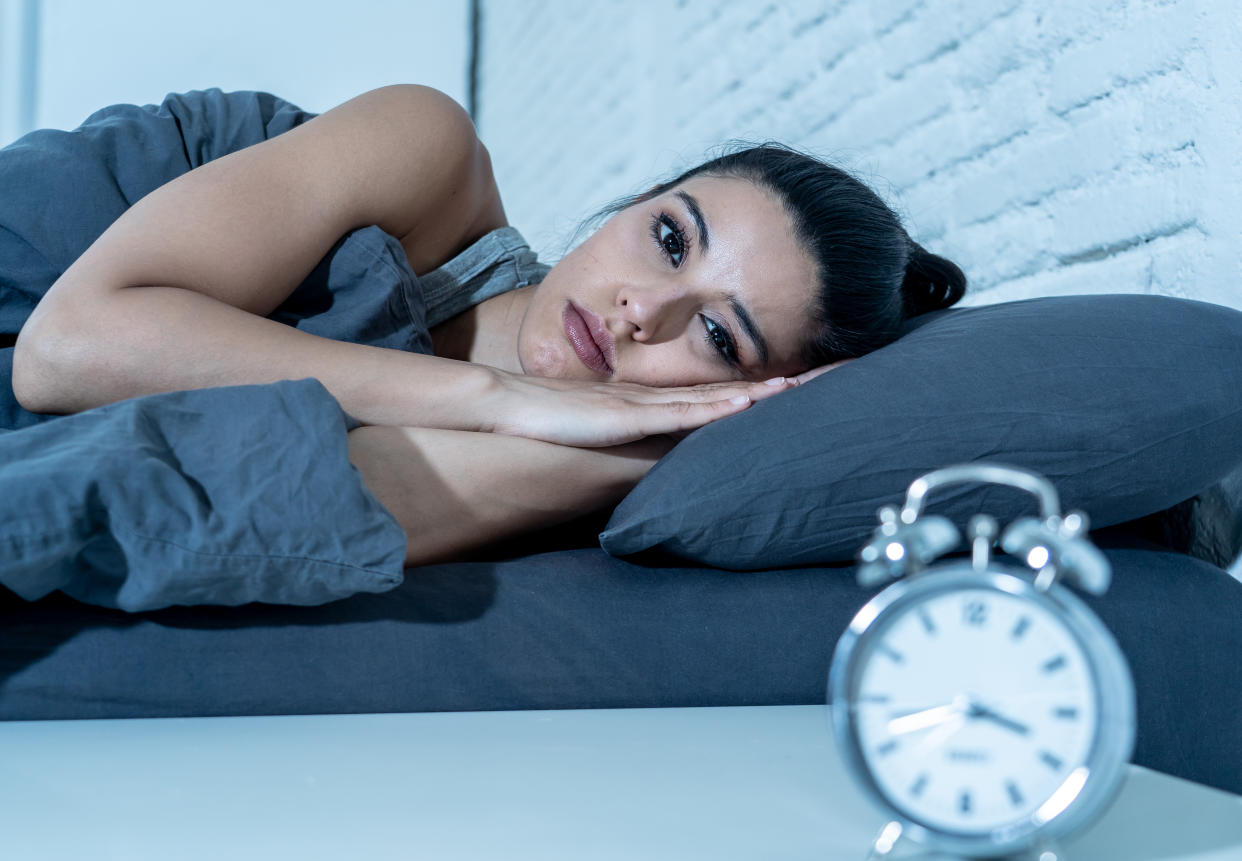Refined carbohydrates like white bread, pasta and rice may trigger insomnia

Refined carbohydrates may trigger insomnia, research suggests.
Scientists from Columbia University in New York looked at the food diaries of more than 50,000 women.
READ MORE: The best sleep aids to help you nod off
They found those whose diets had a higher glycemic index (GI) were more likely to struggle to nod off.
GI is a measure of how carbohydrate-rich foods raise blood glucose levels. High GI produce - like white bread, pasta or rice - cause sugar spikes.
“When blood sugar is raised quickly, your body reacts by releasing insulin, and the resulting drop in blood sugar can lead to the release of hormones such as adrenaline and cortisol, which can interfere with sleep,” study author Dr James Gangwisch said.
Insomnia affects a third of people in the UK, Bupa statistics show.
In the US, 30% of adults struggle to nod off, with 10% battling chronic insomnia, according to the American Sleep Association.
Medical conditions like asthma, back pain and depression can be to blame, as well as shift work, napping and certain medications, the National Sleep Foundation reports.
When it comes to our diet, alcohol, caffeine and heavy meals are all recognised triggers.
READ MORE: Doctors say this is what happens when teens don’t get enough sleep
Studies have suggested refined carbohydrates may cause insomnia, however, results were mixed.
With most trials being short lived, it was unclear if refined carbs triggered the condition or those who struggled to nod off ate more sugary foods to “get them through the day”.
To learn more, the scientists analysed tens of thousands of post-menopausal females who took part in the Women's Health Initiative.
Results, published in The American Journal of Clinical Nutrition, suggest a higher consumption of refined carbohydrates with a high GI raises the risk of insomnia.
Compared to those with the lowest intake, the women who ate the most high-GI foods were 11% more likely to suffer.
Added sugars and processed grains were found to be particularly responsible, while vegetables and whole fruits - not juices - reduced the risk.
“Whole fruits contain sugar, but the fibre in them slows the rate of absorption to help prevent spikes in blood sugar,” Dr Gangwisch said.
“This suggests the dietary culprit triggering the women's insomnia was the highly-processed foods that contain larger amounts of refined sugars that aren't found naturally in food.”
READ MORE: Sleeping more than nine hours a night raises the risk of stroke by up to 85%
The scientists hope their study will help insomniacs overcome the issue without resorting to treatments.
“Insomnia is often treated with cognitive behavioural therapy or medications, but these can be expensive or carry side effects,” Dr Gangwisch said.
“By identifying other factors that lead to insomnia, we may find straightforward and low-cost interventions with fewer potential side effects.
“Based on our findings, we would need randomised clinical trials to determine if a dietary intervention, focused on increasing the consumption of whole foods and complex carbohydrates, could be used to prevent and treat insomnia.”
Although the scientists only looked at post-menopausal women, they expect the results to apply to other populations.


